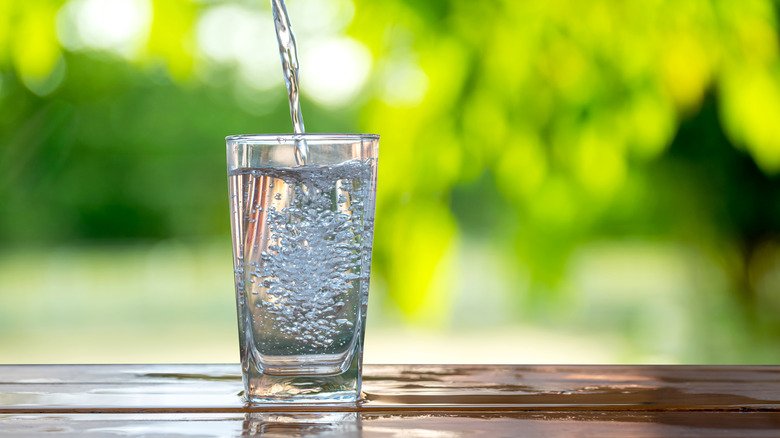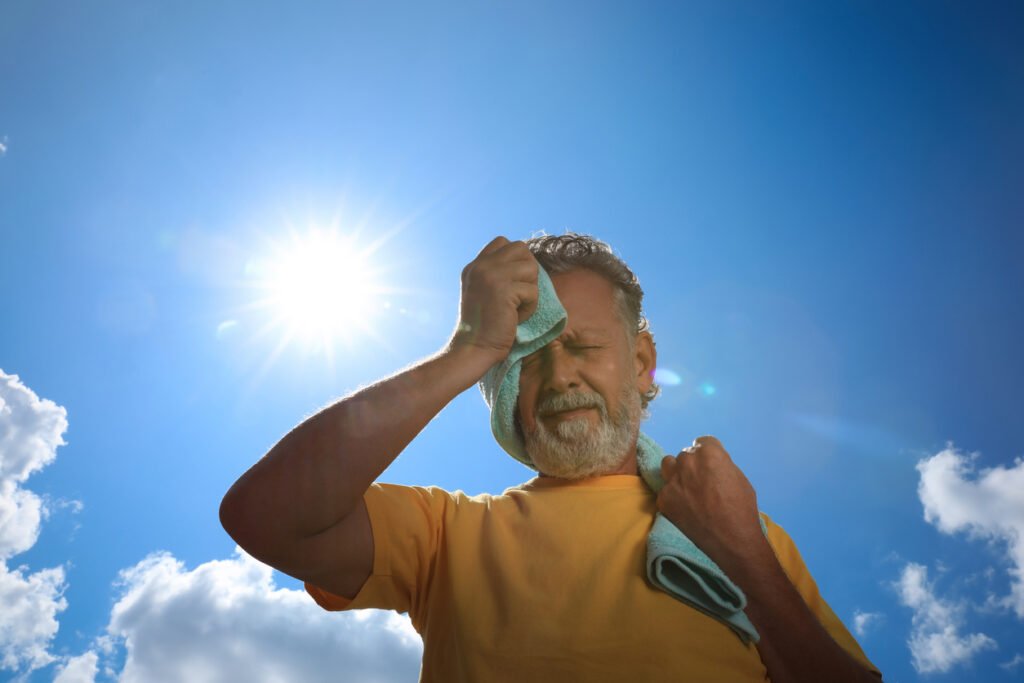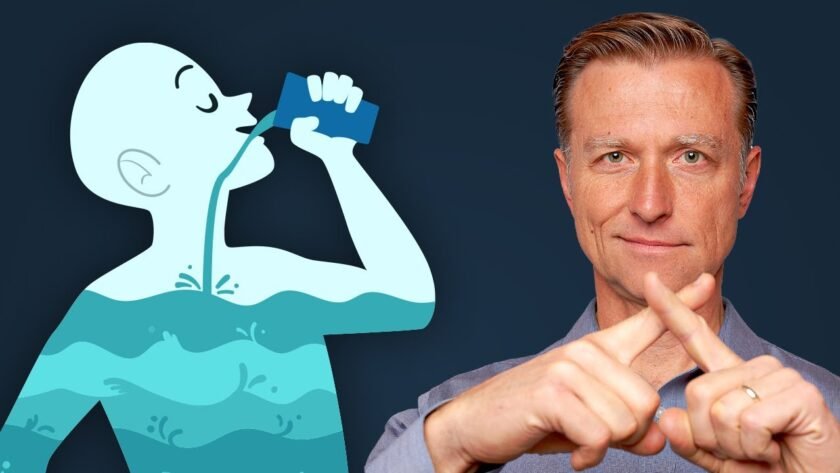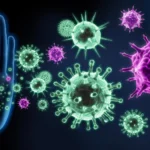Table of Contents
Questioning Constant Hydration
- Our ancestors didn’t drink water constantly throughout the day
- Modern society pushes frequent hydration, which may not be necessary
Benefits of Thirst
- Thirst triggers oxytocin release, a stress-reducing hormone
- Oxytocin has various positive effects on mood and social bonding
Intermittent Water Drinking
- Consider drinking water less frequently, but when truly thirsty
- Listen to your body’s natural thirst signals
Risks of Overhydration
- Can lead to sodium dilution and hyponatremia
- May cause electrolyte imbalance and stress the nervous system
Importance of Salt
- Proper salt intake is crucial for hydration
- Low salt can lead to various health issues
Water Loss Factors
- Body loses water through breathing, exercise, and other processes
- Low humidity can increase water loss
Microplastics Concern
- Drinking from plastic bottles can lead to microplastic consumption
- On average, 16,000 microplastic particles consumed per year from bottled water
Balanced Approach
- Focus on drinking when thirsty rather than constant sipping
- Pay attention to both thirst and salt cravings
- Consider environmental factors affecting hydration
This summary provides a quick overview of the main points discussed in the article, highlighting the key concepts about water consumption, hydration, and related health factors.
So let’s dive into the details…
In a world where constant hydration is often touted as the key to health, a new perspective is emerging: intermittent water drinking. This approach challenges the conventional wisdom of sipping water throughout the day, suggesting instead that we should wait until we’re genuinely thirsty before reaching for that glass of water. But why?
This article explores the science behind intermittent water drinking, its potential benefits, and how it might revolutionize our approach to hydration. From boosting oxytocin levels to improving overall health, discover why sometimes less is more when it comes to water consumption.
Is drinking a lot of water healthy?

So I have a question for you: did our ancestors carry around these water bottles sipping on them all day long? The answer is no, yet we tend to have this idea that we need to be sipping water all day long.
There’s a lot of push to drink often and stay hydrated. I mean everywhere you go, just you know, like a restaurant for example, what’s the first thing they ask you?
“Would you like some water?” At social events everyone’s drinking something constantly. We’re told that we need to drink eight glasses water a day at least because our body is mostly made of water.
- Ancestors didn’t carry water bottles
- Modern push for constant hydration
- Restaurants offer water immediately
- Social events encourage constant drinking
- 8 glasses of water per day recommendation
And no, I’m not telling you not to drink water. We need water and I’m not against water. I just want to share some unique information that I think is going to help you.
Understanding thirst

The first thing relates to a very interesting research paper that I just stumbled on that has to do with thirst and what thirst actually does for us.
It actually triggers a hormone called oxytocin that’s considered the Trust In Love hormone. In fact, oxytocin is a very powerful stress reducing hormone. It actually has the ability to lower cortisol, which is very interesting.
Key Points on Thirst and Oxytocin:
- Thirst triggers oxytocin release
- Oxytocin is the “Trust In Love” hormone
- Oxytocin reduces stress
- Oxytocin lowers cortisol levels
But the sensation of thirst actually increases oxytocin, and if you never get thirsty because you’re drinking all day, you’re not going to be able to trigger that oxytocin as much as if you waited until your body gave you signals of thirst.
Oxytocin explained
I mean when you just think about our ancestors, they didn’t drink as frequent. They might have drank a good amount of water right until they’re satisfied, but they drank intermittently.
And just as you probably know the importance of eating intermittently, what about drinking water intermittently?
| Oxytocin Triggers | Benefits of Oxytocin |
|---|---|
| Thirst | Reduces stress |
| Mother-infant bonding | Promotes feelings of trust and love |
| Pet bonding | Lowers cortisol levels |
| Donating and helping others | Enhances social bonding |
| Social interaction | Improves overall well-being |
Let’s just talk a little bit more about this oxytocin for a second. Oxytocin is what people with addictions are seeking when they’re addicted to certain things, whether it’s drugs or alcohol.
They’re trying to get more oxytocin. Oxytocin gives you very good feelings. It helps reduce stress. Maybe you’ve heard about the oxytocin related to a mother and an infant when they’re bonding. That will increase oxytocin. Also when you bond with your pets, you can increase oxytocin.
They found donating and helping others can increase oxytocin, social interaction, but also there’s some other things that can increase this oxytocin, which is I think a really important hormone to evaluate and just to understand.
Intermittent Water Drinking

So I already told you thirst can do it, but also heat and even sweating increases oxytocin as well. So apparently being overhydrated is not going to really help you with oxytocin.
So what I’m talking about is not reducing the quantity of water at all. I’m not talking about that. I’m talking about decreasing the frequency of drinking water.
Intermittent Water Drinking Suggestions:
- Wait for genuine thirst signals
- Consider not drinking immediately upon waking
- Avoid drinking large amounts before meals
- Pay attention to your body’s natural thirst cues
I mean it’s just amazing how we drink water on this automatic type mechanism at a social activity. We drink certain beverages for flavor, but we don’t really drink for solving this thirst situation.
You may want to just try this out. You get up in the morning, ask yourself: am I really thirsty before you eat your first meal? Maybe it’s at lunchtime. Are you really thirsty? Do you need to drink something?
What happens when you drink too much water?

Because realize drinking a lot of water before a meal could dilute the hydrochloric acid that could affect your digestion.
But again, I’m not against that if you’re thirsty. But if you’re not thirsty, I’m rarely thirsty until the late afternoon, maybe even going at like 4 or 5:00. So lately I’ve been doing an experiment with myself just to not drink in the first part of the day and just see what happens.
But realize you may find that your stress goes down a bit if you don’t drink as often. You should try it out and see.
- Dilution of sodium (hyponatremia)
- Increased stress on the sympathetic nervous system
- Elevated adrenaline levels
- Decreased parasympathetic activity
- Potential for insulin resistance
- Risk of leg cramps
- Possible abdominal pain
Now the other thing I want to mention about this is that when you drink a lot of water, okay, you are diluting your sodium.
and I’ve talked about this in other videos. There’s a condition called hyponatremia, which you have low sodium and one reason for that is you’re drinking a lot of water and that can flush out the electrolytes, making you feel tired, weak, fatigued.
Microplastics in water
The other point I want to bring up about drinking a lot of water is that the plastic containers, on average in one year a person consumes 16,000 microplastic particles from drinking water in these plastic containers.
Every time you twist the plastic cap on that plastic bottle you release like 500 microplastic particles and as the temperature goes up and goes down that degrades the plastic as well.
Microplastics in Water Bottles:
- 16,000 microplastic particles consumed per year
- 500 particles released when twisting bottle cap
- Temperature changes degrade plastic
- 93% of tested bottles contained microplastics
And in one study I found 93% of all plastic bottles that were tested contained microplastics, not all of them but the great majority.
Summary
- An interesting research paper suggests that thirst triggers oxytocin, the trust and love hormone. This is also a powerful stress-reducing hormone.
- If you drink something all day long, you may not trigger oxytocin as much as if you waited until your body gave you signals of thirst.
- We know the importance of eating intermittently, but what about drinking intermittently? We don’t want to reduce the quantity of water we drink, but what if we decrease the frequency we drink?
- Drinking too much water can dilute your stomach acid and affect your digestion. It can also flush out electrolytes and lead to low sodium levels.
- A sodium deficiency may cause fatigue, weakness, an increase in adrenaline, and many other health concerns. You need a combination of water and sodium in your diet to really hydrate your body.
- I think we need to ask ourselves more often whether we’re actually thirsty or not. You may even find your stress goes down a bit if you don’t over-hydrate.
DATA
https://pubmed.ncbi.nlm.nih.gov/27241263
FAQ
Why am I so thirsty while intermittent fasting?
During intermittent fasting, you may experience increased thirst due to several factors:
- Reduced water intake from food sources
- Changes in hormone levels, particularly insulin
- Increased breakdown of glycogen, which releases water
- Potential electrolyte imbalances
It’s important to stay hydrated during fasting periods, but be mindful of overhydration as well.
Why am I not thirsty but I need more water?
This situation can occur due to various reasons:
- Desensitized thirst mechanisms due to chronic dehydration
- Certain medications that affect thirst perception
- Age-related changes in thirst sensation
- Underlying health conditions affecting hydration needs
It’s crucial to maintain proper hydration even when not feeling thirsty, as thirst isn’t always an accurate indicator of hydration status.
Why isn’t my thirst going away after drinking water?
Persistent thirst despite drinking water could be due to:
- Dehydration severe enough that it takes time to rehydrate fully
- Electrolyte imbalances not addressed by plain water
- High blood sugar levels (common in diabetes)
- Certain medications causing dry mouth
- Underlying medical conditions affecting fluid balance
If persistent thirst continues, consult a healthcare professional to rule out any serious conditions.
Why is it not good to drink water immediately?
Drinking water immediately in certain situations may not be ideal:
- Before or during meals: May dilute stomach acids, potentially affecting digestion
- Right after intense exercise: Can cause nausea or stomach discomfort
- Immediately upon waking: May disrupt the body’s natural processes of waking up
- When very cold water is consumed quickly: Can shock the system and potentially affect digestion
It’s generally better to sip water slowly and consistently throughout the day rather than drinking large amounts all at once.
10 signs you don’t drink enough water
- Dark urine color
- Dry, sticky mouth
- Headache
- Fatigue
- Decreased urine output
- Dry skin
- Dizziness
- Rapid heartbeat
- Confusion or irritability
- Constipation
These signs can vary in severity and may also be symptoms of other conditions. Persistent symptoms should be evaluated by a healthcare professional.
I don’t drink enough water but I’m not thirsty
This situation is not uncommon and can occur due to:
- Habituation to chronic mild dehydration
- Consumption of other fluids that mask thirst (e.g., caffeinated beverages)
- Age-related decrease in thirst sensation
- Certain medical conditions or medications affecting thirst perception
It’s important to develop a habit of regular water intake, even when not feeling thirsty, to maintain proper hydration.
Drink water only when you are thirsty myth
This myth can be misleading because:
- Thirst is often a late indicator of dehydration
- Some people, especially older adults, have diminished thirst sensations
- Certain activities or environments may increase water needs before thirst occurs
- Proper hydration is crucial for many bodily functions
While thirst is an important signal, it’s beneficial to maintain consistent hydration throughout the day rather than relying solely on thirst cues.
16 alarming side effects of not drinking enough water
- Increased thirst
- Dry mouth and lips
- Decreased urine output
- Dark-colored urine
- Fatigue
- Headache
- Dizziness
- Dry skin
- Rapid heartbeat
- Confusion
- Muscle cramps
- Constipation
- Kidney problems
- Low blood pressure
- Heat exhaustion
- Seizures (in severe cases)
These effects can range from mild to severe. Chronic dehydration can lead to serious health issues and should be addressed promptly.
Body not absorbing water symptoms
Symptoms of poor water absorption may include:
- Persistent thirst despite adequate water intake
- Dry mouth and skin
- Fatigue and weakness
- Decreased urine output or very clear urine
- Dizziness or lightheadedness
- Rapid weight loss
- Electrolyte imbalances
Poor water absorption can be caused by various factors including certain medical conditions, medications, or excessive fluid loss. Consult a healthcare provider if you suspect issues with water absorption.
Symptoms of drinking too much water
Overhydration, also known as water intoxication, can lead to:
- Nausea and vomiting
- Headache
- Confusion
- Disorientation
- Drowsiness
- Muscle weakness or cramping
- Difficulty breathing
- Seizures (in severe cases)
These symptoms are caused by dilution of electrolytes, particularly sodium, in the body. While rare, overhydration can be dangerous and requires immediate medical attention.
Benefits of drinking water when not thirsty
Drinking water even when not thirsty can provide several benefits:
- Maintains optimal hydration levels
- Supports cognitive function and mood
- Aids in digestion and prevents constipation
- Helps regulate body temperature
- Supports kidney function and toxin elimination
- May help with weight management
- Promotes healthy skin
While it’s important not to overhydrate, maintaining consistent water intake throughout the day can support overall health and well-being.
What happens if you don’t drink enough water long term
Chronic dehydration can lead to several long-term health issues:
- Kidney problems, including increased risk of kidney stones
- Digestive issues and chronic constipation
- Increased risk of urinary tract infections
- Reduced cognitive function and mood disorders
- Chronic fatigue
- Increased risk of heat-related illnesses
- Skin problems, including premature aging
- Joint pain and reduced flexibility
- Increased risk of certain types of cancer
- Compromised immune system function
Maintaining proper hydration is crucial for long-term health and disease prevention. If you struggle with consistent water intake, consider setting reminders or using a water tracking app.




